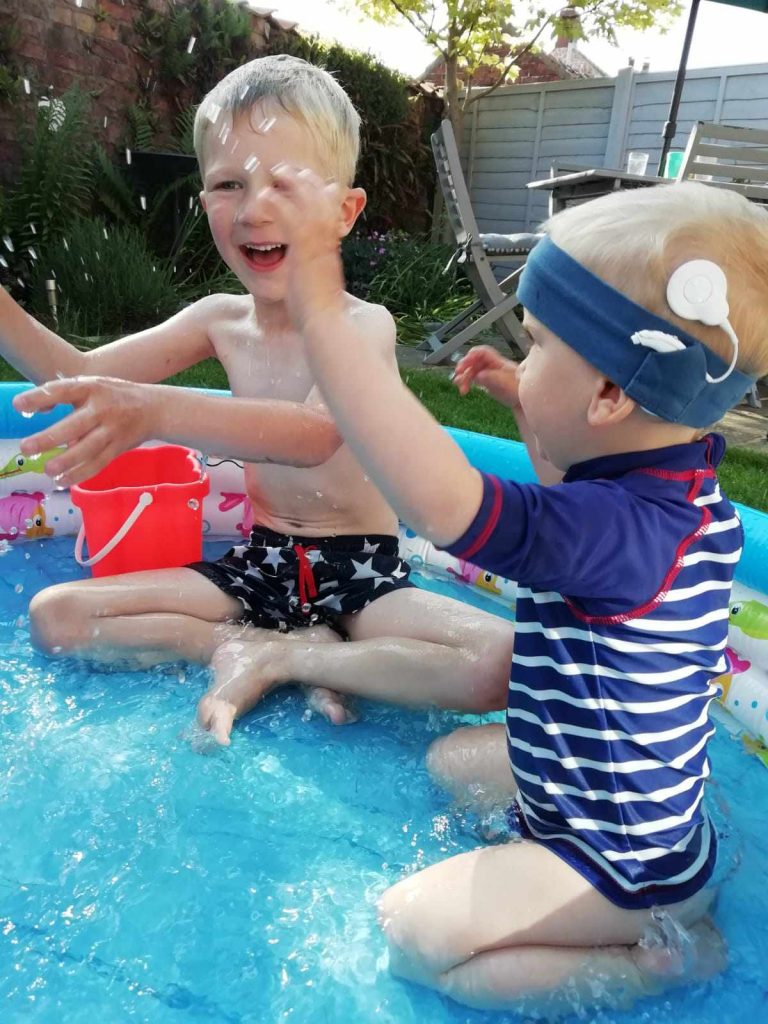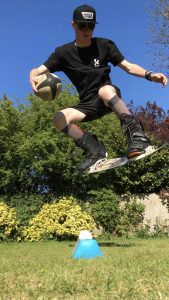
Faq and What to Expect
The assessment and decision making process can be challenging. We will try to answer all of your questions to help you make the best decision for you.
Here are some of our FAQs:
During the assessment process we would usually be able to identify if there was a reason that the implant may not benefit the recipient. This may show up on a scan for example. If no contraindications are found, it is extremely unlikely that you will not hear anything through the implant. You would be well supported by a team of professionals who will advise the best rehabilitation programme and will recommend exercises to maximise your listening potential.
We have technicians available to offer advice via phone, text, email and face to face appointments. The workshop is open week days 8:30am-4:30pm, with a full spares and repairs service. should there be an issue at the weekend you will be given advice once you have been switched on, as to who to contact. Each manufacturer has a wide range of helpful YouTube videos to assist you with troubleshooting any problems.
Unless there is a specific reason an ear cannot be implanted, then according to NICE guidance, all children are eligible for bilateral implants.
Adults routinely receive one implant unless they fall into a specific category of patients who require 2 implants (eg. blind)
https://www.nice.org.uk/guidance/TA566/chapter/1-Recommendations
How many appointments will I have before and after having a cochlear implant?
There are many appointments to attend in the build up to making the decision regarding Cochlear Implantation. You will see many professionals and there will be lots of information for you to take in. See our ASSESSMENT section for more information about these appointments.
If you are eligible for Cochlear Implantation you will have a series of appointments following the operation, after a couple of weeks of healing time, and we call these ‘Switch On’ appointments. The audiologists and speech and language therapists will be able to discuss your expectations, and you will be given the opportunity to talk to someone who already has a cochlear implant to help you prepare for these appointments. Switch on appointments can provoke many emotions, and you are encouraged to bring a friend or family member to help support you during these appointments; if this is not an option be reassured you will be well supported by our clinical team.
What will happen when you switch the implant on? Will I see my child react?
At the switch on appointments, the audiologist will ensure the surgery site is healed enough to fit the processor (outside part). There will some listening tasks to perform, similar to previous hearing tests, to try and gain information about what you are hearing with your implant. Using this information, the audiologist will set the levels of the processor and conservatively turn the device on.
Each individual, Adults and Children, will have a different experience when the implant is first switched on. Some can hear sounds in their environment straight away and for others it takes a little time. And for children, parents may experience different reactions from their child; some children with smile, others may cry and sometimes you may not even see much response at all initially. Learning to hear with the implant takes time, and everyones experience is different.
Typically a surgeon is given between 1.5 – 3 hours of time in theatre to perform the surgery, depending on whether your surgery is for one or two ears. See our OPERATION section for more information about the surgery.
After the operation there is a period of time (usually between 2-3 weeks) whereby you cannot wear your amplification device (Hearing aids or Bone Conduction aid for example) on the ear which has undergone surgery – if you have bilaterally cochlear implants that will mean no amplification in either ear during the healing period. You will need to prepare for this time. Ensure you have safety measures in place (this may be in the form of visual alarms etc.) and that work, family and friends, and other important people are aware of your position during this period of time. Some example for compensating during this period of time may be: discuss working from home with your manager, or ensuring you have relatives visit your home instead of venturing out. It may be that you need to take this time off work completely, to allow chance to heal and remain safe.
For children this may mean a period of time out of nursery/school. Your child also may experience some difficult emotions during this time, perhaps upset not being able to wear their devices, or being without sound may confuse them. It is important for your child to feel safe and supported during this time: it won’t be for long.
When will she/he be able to speak?
Speech can be affected by hearing loss, and for anyone who is pre-lingually Deaf (this term means: Deaf before having learnt a spoken language) they may not have any speech yet. Therefore your speech may change after your implant is switched on.
For post-lingually Deaf (this term means you became deaf after you had acquired spoken language) adults we would typically expect the implant to help you to regulate your volume more easily. For children, their speech may become a little clearer.
The impact of a cochlear implant for pre-lingually deaf adults is vary variable, and if your main motivation for having the implant is to obtain speech, this is not often an achievable outcome. However a cochlear implant may give some access to environmental sounds and assist your primary language (for example BSL and lip-reading). Your multi-disciplinary team will discuss in length during your assessment process the challenging factors for pre-lingually Deaf adults.
For children with pre-lingual Deafness, the cochlear implant team would aim to establish implantation in the first couple of years of life to ensure the critical period for speech and language development in the brain is not missed.
Predicting speech outcomes for after cochlear implantation is very difficult, however our team will support you throughout the decision making process and guide the rehabilitation if you receive a cochlear implant.
If you’re an adult having a cochlear implant there will be no changes to the way you speak. you may find you talk a little quieter – if you are used to shouting – and most find this a benefit to being implanted.
Should we learn to use sign language/Makaton/BSL?
Your professional team at the Cochlear Implant centre will be able to discuss your/your child’s individual communication needs.
Generally with children we encourage the use of spoken language as their primary language, which may be support with sign. However this may vary in individual cases. It is important to practice listening with the cochlear implant, and if you receive visual aid to help with your listening, this can compromise all the hard work you/your child is doing with listening practice!
If your primary language at home is BSL, then absolutely, continue to communicate with your family/friends using sign. We would recommend taking yourself into non-BSL using environments to help with your listening practice.
Can my child play out in the rain? Can my child wear the implant in the bath? Can my Child go swimming?
Generally we advise to treat your cochlear implant as if it is water-resistant. This means it is splash proof and can be worn – for example – in the rain, the bath, whilst splashing in a pool or exercising. But not to be submerged in water. Each cochlear implant has its own special rating, meaning there are different levels of waterproofing for each model. Companies also provide waterproof kits, occasionally these are available as a present from the company, otherwise you can purchase these privately.
Its is not recommended to dive below 20m. And you should ensure your goggle, or diving mask are not too tight around the implant site.
Can my child play sports?
Playing sports is absolutely possible with a cochlear implant. There are a few strong suggestions:
– Try to avoid contact sports, such as rubgy, boxing, judo, karate etc.
– Wear a helmet for sports which risk a head trauma, such as skiing, horse riding, cycling, sailing etc.
– Use your dry box daily to avoid moisture (perspiring during sports) damage
In short:
Protect your head from impact & protect your implant system/processor.
Can I use the phone?
The phone is the most challenging listening situation for a cochlear implant user. Not everybody goes on to make voice calls following their cochlear implant. you would need to be able to understand speech very well just by listening alone. Alot of cochlear implant users find with time and practise they are able to use the phone again to talk to familiar people and some users can talk to a wide range of people on the phone.
We recommend you do not try to use the phone in the early stages of having a cochlear implant. There is also a group session run by our Speech and Language Therapists dedicated to helping you get started on the phone. For some people, it is just too challenging, even after all the practice and support.
Will my child go to mainstream school?
If you baby has been fitted with cochlear implants it is very hard to predict at what stage their development will be by the time they are at school age. Many children with cochlear implants attend mainstream schools, and have support ranging from an occasional visit from the Teacher of the Deaf, to more extension one-to-one support. Your child’s’ needs will be assessed at school age an a best decision will be made for them, with the help and support of the Teacher of the Deaf. There are schools with special provision for children with disability or complex needs, and this option can be explored if your child has additional needs in order to access education.
If you child is approaching school age or is in school, and you have concerns about their provision, it is encouraged that you contact your local Teacher of the Deaf to discuss further. You can also contact your Cochlear Implant department and one of our specialist Teachers of the Deaf will contact you to discuss your concerns further.
Can she/he travel on an aeroplane?
Taking your cochlear implant on a flight/abroad/on holiday
You can travel with your cochlear implant. There are however a few things you might like to consider when preparing for your trip.
There is no problem taking your implant through airport security, the advice is to avoid using the larger round body scanners; instead to notify staff and use the smaller “doorway” type scanner.
Again, there is no problem in wearing your cochlear implants during a flight. They are safe to use, and there is no risk of problems during the flight with either the implanted device or the external processor. You may wish to check with the air stewards for airplane specific advice for take off and landing.
It is important to have a provision for if the processor is lost. You can insure yourself with the manufacturers, who can arrange to have a replacement posted to wherever you are if the processor is lost or broken. Unfortunately, we cannot provide you with a spare processor for this purpose. Otherwise remember to take enough batteries, or a correct plug adapter to use your rechargeable batteries. Remember to take your drying box – especially if you are travelling to a hot country where you may perspire more than usual, or if you are using a swimming pool. You may also want to think about taking waterproof covers for your processor. There is more information about water and your processor on this page.
How do I arrange transport?
If you qualify for using the transport service, ask your GP to arrange the transport for the initial appointment.
For following appointments: the GP will need to send a letter explaining why you require transport, and if agreed with the department then future transport for appointments will be arranged with our admin team.
Music and TV
For adults who have lost their hearing, music will sound very different to how they remember it. some adults find this very disappointing and may stop listening to music. However others learn to enjoy music again through their implant. This can take time and practice.
For children who are implanted at an early age, they often learn to enjoy music but may have difficulty following the words.
Likely not. Most adult cochlear implant users continue to use the subtitles to back up the speech that is being heard on the TV. with time and practice, some users find they are not as reliant on the subtitles on the TV if the speech is clear.







